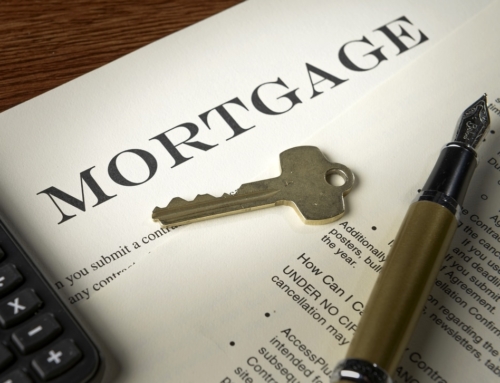Sometimes it’s the little missteps in life that can cause the biggest headaches.
Losing a job, losing a spouse, or getting sick, divorced or separated can cause extreme financial hardships for many families. If you’re living paycheck to paycheck, losing even one paycheck can cause your financial house of cards to collapse.
If you get into financial trouble, you should do whatever it takes to get yourself back on your feet, including taking a second or third job. But if you get to a point where you simply don’t have enough cash in your account to get all your bills paid, you’ll have to make a choice about what to do.
And when it comes to paying your bills, most homeowners don’t realize there is a definite pecking order.
What’s the worst thing that will happen if you fail to pay your credit card bill? Your debts will be sent to a collection agency, which will then begin to harass you in order to get you to pay up. You’ll trash your credit history and score, and may ultimately have to declare bankruptcy. All of these things can go on for years.
What happens if you don’t pay your mortgage, home equity loan and home equity line of credit? If you fail to pay these, you could lose your house.
But let’s say something catastrophic happens, and suddenly there is no money coming into your household. You can’t pay your mortgage or any other bills. What should you do?
Your first move should be to contact your lender and talk to the loss mitigation department.
Many homeowners mistakenly believe that if their mortgage lender knows they’re in trouble, their loan will immediately be put into foreclosure. In reality, the Department of Housing and Urban Development requires lenders to develop a strategy that can help you keep your home. Fannie Mae and Freddie Mac, the two secondary mortgage market leaders, require lenders to work aggressively with borrowers who are going through tough times financially.
While it’s embarrassing to talk to a complete stranger about your financial problems, you have to be honest with your lender. And, you have to move fast. When you’re overwhelmed by a disaster, it’s easy to forget you have financial responsibilities that also have to be dealt with.
When it comes to working out a payment plan on your mortgage, the options lenders have work best when you are only one or two payments behind. The farther behind in your payments you are, there are fewer options available.
Contact the lender via the toll-free number that is listed on your monthly mortgage billing statement, your payment coupon book, or through any web link or customer service number that is provided.
Your lender will need your loan account number, a brief explanation of the situation in which you find yourself, documents that show any income you are receiving (such as a pay stub, benefit statements from social security, disability, unemployment, retirement or public assistance or a year-to-date profit and loss statement if you’re self-employed) and a list of household expenses.
After you talk to the lender, the company will mail you a “loan workout” package that contains information, forms and instructions. You must complete these documents and send them back so the lender can review them and figure out what kind of solution will be right for your situation.
For short-term financial problems, lenders might offer an option called “reinstatement,” “forbearance,” or will put you on a repayment plan.
Reinstatement means you and the lender agree that you will pay the total amount that is owed in a lump sum by a specific date. Forbearance means the lender will permit you to suspend or reduce your payments for a period of time, after which you’ll either need to pay everything in full or go on a repayment plan, and get caught up on your mortgage by adding to your regular payments.
If your situation is long-term, the lender may be able to “modify your mortgage” by either adding the missed payments to the end of the loan, changing the interest rate or extending the number of years you have to repay.
One of the big mistakes homeowners make when they have financial trouble is they fail to open the mail. Bills are late, marked “overdue” and it’s emotionally overwhelming to have to open them up and keep them organized — especially if you can’t make the payments.
But if you don’t open up the loan workout package, your lender can’t help you. If you don’t fill out the forms and return them quickly, your lender will have to start the foreclosure process, and this will make your loan workout a lot more expensive.
If you simply can’t face your lender, you can talk with a HUD-approved housing counselor who can help you assess your financial situation. Call toll free 800-569-4287 or go to the HUD.gov website to find a housing counselor near you.
For help planning a budget, go to the National Foundation for Consumer Credit (nfcc.org) to link through to an accredited, nonprofit, budget counseling organization. If you decide to use a credit counseling agency, be sure you understand what fees will be involved. Budget and credit counseling should be free, although there may be a small charge to enter a debt management program.
May 6, 2005.






Leave A Comment